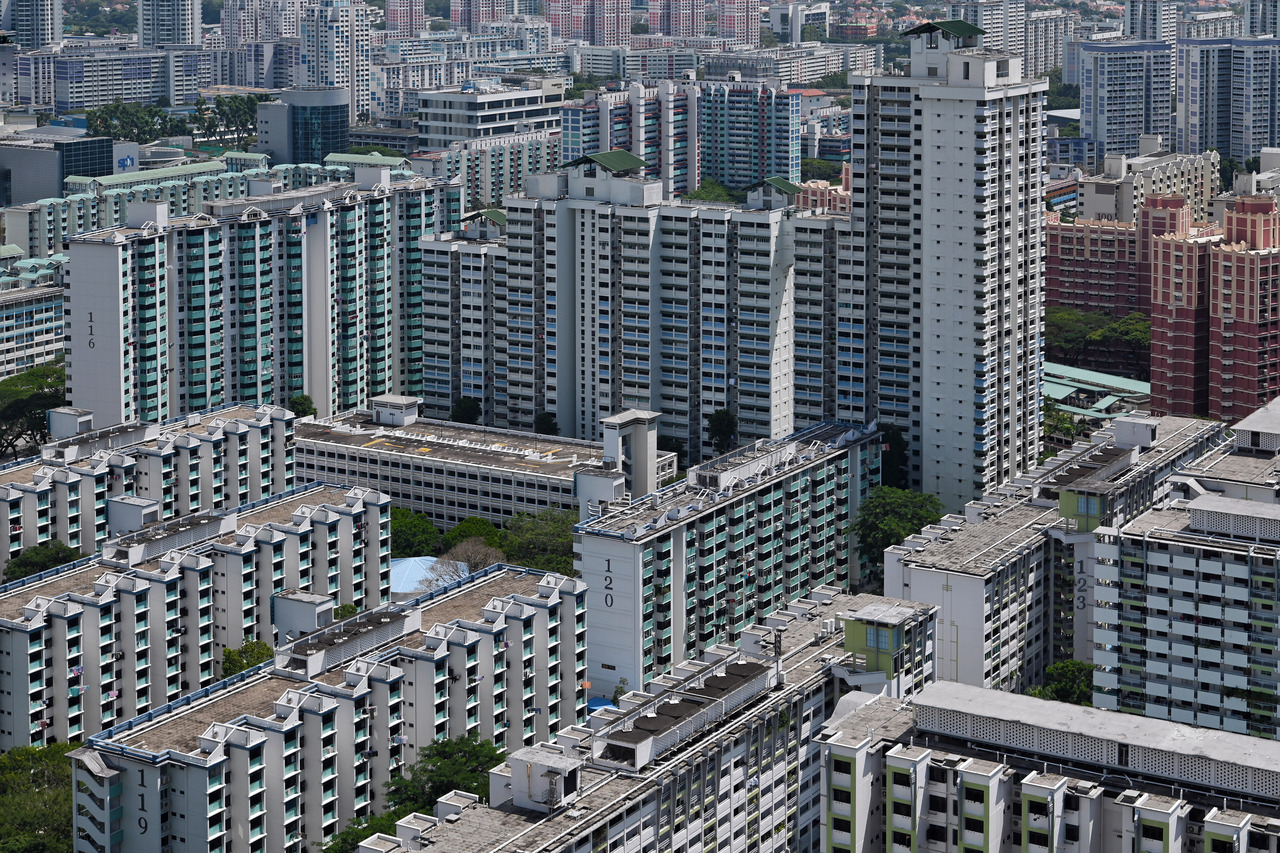Budget debate: HDB to buy back flats from owners who are unable to sell due to ethnic quota limits
Sign up now: Get ST's newsletters delivered to your inbox

The move to buy back EIP flats comes on top of existing measures to help owners constrained by the policy.
ST PHOTO: KUA CHEE SIONG
Follow topic:
SINGAPORE - Home owners who have difficulties selling their flats due to ethnic quota limits can now request for the Housing Board to buy back their units, said National Development Minister Desmond Lee on Tuesday (March 8).
To be eligible for the buyback, owners need to have owned the flat for at least 10 years and made regular, genuine attempts over a period of six months to sell their flat at a reasonable asking price on the open market.
Speaking during the debate on his ministry's spending plans, Mr Lee said the Government is aware that a small number of flat owners may have difficulties selling their flats when the racial quota in their block or neighbourhood - determined by the Ethnic Integration Policy (EIP) - is reached.
He noted that some may have to lower their asking price as a result, or take longer to sell their flat.
Responding to Mr Chong Kee Hiong (Bishan-Toa Payoh GRC) and Mr Lim Biow Chuan (Mountbatten), who mooted giving a grant to affected households, Mr Lee said it would be difficult to size the grant fairly.
On Mr Saktiandi Supaat's (Bishan-Toa Payoh GRC) suggestion to apply the EIP limits over a larger geographical area, he said this would likely lead to over-concentration of particular ethnic groups at the block or neighbourhood level, and may cause more owners to be affected by the quota over time.
"So, on balance, we have decided that the most feasible option would be to buy back flats from EIP-constrained households in genuine need," said Mr Lee.
"This is not a decision that we make lightly, because it requires significant Government resources. But we believe it is the right thing to do, because the EIP benefits all of us, and helps to foster a more cohesive society," he added.
Mr Lee noted that the move to buy back EIP flats comes on top of existing measures to help owners constrained by the policy, and said requests will be assessed on a case-by-case basis, subject to each household's specific circumstances.
Over the years, HDB has given such flat owners more time to sell their existing flat if they have purchased another one. It has also waived EIP limits in exceptional circumstances such as to allow flat owners to sell their flat to buyers from any ethnic group.
However, it is not sustainable to waive the EIP limits for every flat owner who faces constraints as it would erode the policy's objectives, said Mr Lee.
Introduced in 1989, the EIP sets racial quotas on flat ownership within each HDB block and neighbourhood at the point when a flat is purchased, and subsequently when it is resold.
Today, nearly one in three HDB blocks, and 16 per cent of HDB neighbourhoods, have reached one or more of the EIP limits.
In assessing buyback requests, HDB will consider if the flat owner had marketed the flat for sale over a continuous period comparable to the time taken by most flat owners to sell their flats.
This is currently determined to be six months, although it could change depending on prevailing market conditions.
To set a reasonable asking price, HDB advised flat owners to refer to recent transaction prices for units located within 200m of their flat, and factor in attributes such as storey height and orientation.
Flat owners should also keep a monthly record of online or print property listings showing the asking price and listing date as well as records of flat viewings, and submit them to HDB when seeking help.
Once a flat owner is assessed to be eligible, a professional licensed valuer will be appointed to value the flat.
HDB will then determine the buyback price and make a fair offer so that the household is not unduly disadvantaged due to the EIP, said Mr Lee.
Owners have up to three months to decide if they wish to take up the offer. Those who choose not do so, or reject the offer, will not be eligible for buyback assistance for 12 months after the offer lapses.
The buyback assistance is available to flat owners who bought their flats from HDB or on the resale market, regardless of whether the flat was subjected to the EIP quota when it was bought, said Mr Lee.
Flat owners who do not fulfil the criteria but face extenuating circumstances may seek special consideration from HDB, he added.
Flats bought back by the HDB will then be offered for sale to the public through the Sale of Balance Flats exercises or open booking at a subsided rate, and are subject to prevailing ethnic proportions.
The issue of EIP has come under the spotlight, including last July when MPs from both side of the House questioned if the policy was still relevant today in light of changing households profiles.
On Tuesday, Mr Lee said the EIP enables people from different ethnic backgrounds to interact in their daily lives at the markets or hawker centres, in schools and playgrounds.
"That provides the conditions to foster tolerance and understanding, and counteract the powerful social forces that tend to divide us," he said, adding that racial concentrations could be much higher in various parts of Singapore without it.
"So the EIP remains relevant and important in promoting racial harmony, and I'm glad that we've established a bipartisan consensus on this after our debate in this house last July," he said.

